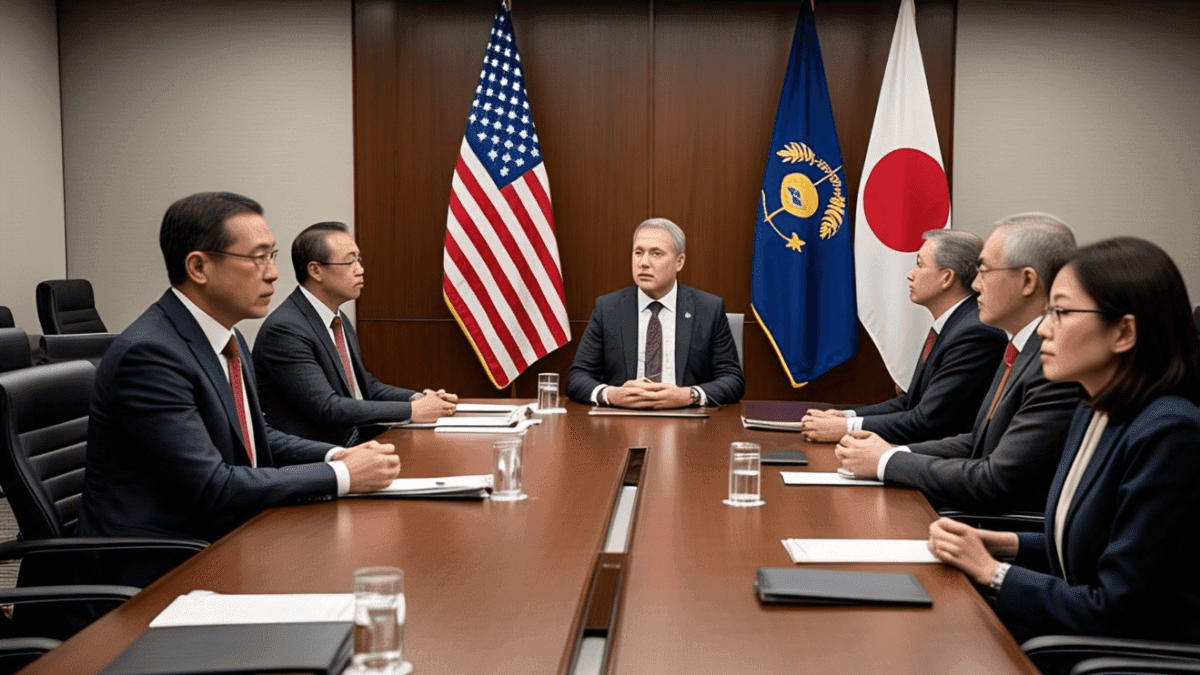In a significant move amid ongoing trade negotiations, U.S. and Japanese finance chiefs agree that the dollar-yen exchange rate reflects economic fundamentals, signaling a commitment to market-determined currency values.(Kyodo News+)
Table of Contents
- Overview of the Agreement
- Context: Trade Tensions and Currency Concerns
- Market Reactions and Economic Implications
- Broader Impact on Global Trade and Finance
- Conclusion
Overview of the Agreement
On May 21, 2025, U.S. Treasury Secretary Scott Bessent and Japanese Finance Minister Katsunobu Kato met on the sidelines of the G7 Finance Ministers meeting in Banff, Canada. In a joint statement, they affirmed that the current dollar-yen exchange rate reflects market fundamentals and should be determined by market forces. (SRN News, Reuters)
This consensus marks a notable development in U.S.-Japan economic relations, especially given past criticisms from U.S. leadership regarding Japan’s currency policies.
Context: Trade Tensions and Currency Concerns
The agreement comes amid heightened trade tensions between the U.S. and Japan. President Donald Trump’s administration has imposed tariffs on various imports, citing trade imbalances. Japan, facing a 24% tariff on certain exports, has been in negotiations to mitigate these measures. (Reuters, Kyodo News+)
Historically, the U.S. has expressed concerns over Japan’s currency practices, accusing it of maintaining a weak yen to boost exports. Japan has consistently denied these allegations, emphasizing its commitment to market-determined exchange rates.(SRN News, Kyodo News+)
Market Reactions and Economic Implications
Following the announcement, the dollar briefly strengthened against the yen, reaching 144.40, before settling below 143.50 due to Japan’s cautious confirmation. (Reuters)
Key Insights:
- Investor Sentiment: The affirmation of market-determined exchange rates may reassure investors concerned about potential currency manipulation.(Kyodo News+)
- Trade Negotiations: Separating currency discussions from trade talks could streamline negotiations and reduce complexities.(Reuters)
- Economic Stability: Acknowledging that the exchange rate reflects fundamentals may contribute to financial market stability amid global economic uncertainties.
Broader Impact on Global Trade and Finance
The U.S.-Japan agreement may influence other nations’ approaches to currency and trade policies. As major economies navigate the challenges of trade imbalances and currency fluctuations, this consensus could serve as a model for balancing national interests with global economic stability.
Additionally, the reaffirmation of market-determined exchange rates aligns with the broader G7 commitment to open and fair trade practices, potentially easing tensions among member nations.
Conclusion
The U.S. and Japan’s joint acknowledgment that the dollar-yen exchange rate reflects economic fundamentals represents a significant step in fostering mutual understanding amid complex trade negotiations. By emphasizing market-determined currency values, both nations signal a commitment to economic principles that may contribute to global financial stability.
For further insights into global economic developments, explore our related articles:
